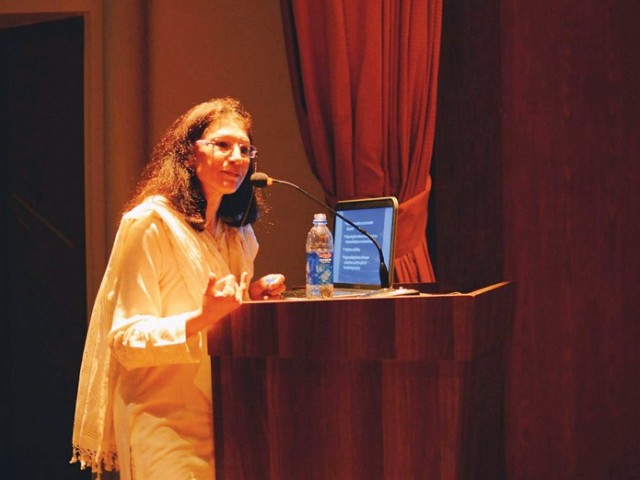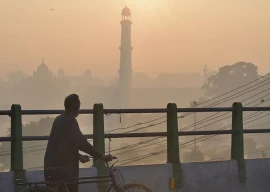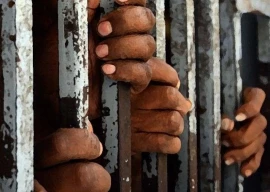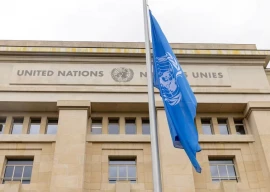
Pakistanis have no choice but to keep up hope, historian Ayesha Jalal said on Sunday.
She was in conversation with lawyer Saroop Ijaz at Books n Beans. Ijaz said The Struggle for Pakistan, Jalal’s latest book, could be seen as a culmination of her earlier work. He said the book, a riveting read, was distinct from her other work.
Jalal said she had always intended to bring the nation’s narrative history as close as possible to present times. She said Pakistanis had lost control of the international narrative regarding the nation. Jalal said this included presenting the creation of Pakistan as a mistake, portraying it as a failed state or an irrelevant state.
She said the country’s depiction as an irrelevant state had gained currency, especially in India. Jalal said she wanted to challenge this presentist narrative of history. She said the fact that the work had seen the light of the day was a miracle in itself as no assistance was usually rendered to historians in the country.

She said determinism could be counterpoised by seeing the nation’s history as a consequence of decisions taken over time. She said determinism had imperilled the nation’s future. This is what the nation is at risk of losing, Jalal said. She said its popularity could be attributed to the Islamic belief in predestination.
Jalal said there was a great misconception in Pakistan regarding its relationship with the United States of America. There is no room for romance in international relations, she said. Jalal said their bilateral ties had been based on active policy executed knowingly and not on the premise of any delusion. She said both states had “milked” their relationship to their greatest advantage.
The historian said there was a profound difference between the military establishment of the 1990s and that of present times. She said Pakistani society and the international arena had also evolved in this timeframe. Jalal said the army had come to realise that staging coups was not advantageous. She said there was no rhyme or reason for the military to do this when it could stay out of government and fashioning itself as the ultimate arbitrator of power. Jalal said the Yemen imbroglio was a problem in Saudi Arabia’s backyard that did not “engage” Pakistan. She said the cauldron did not constitute a threat to the territorial integrity of the kingdom. Jalal said recent government statements were a show of support for the House of Saud. She said the conflict was premised around Saudi Arabia and Iran’s quest for influence over the region which was often given a sectarian colour.
Published in The Express Tribune, April 6th, 2015.
1719315628-0/BeFunky-collage-(8)1719315628-0-405x300.webp)


1731329418-0/BeFunky-collage-(39)1731329418-0-165x106.webp)













COMMENTS (2)
Comments are moderated and generally will be posted if they are on-topic and not abusive.
For more information, please see our Comments FAQ